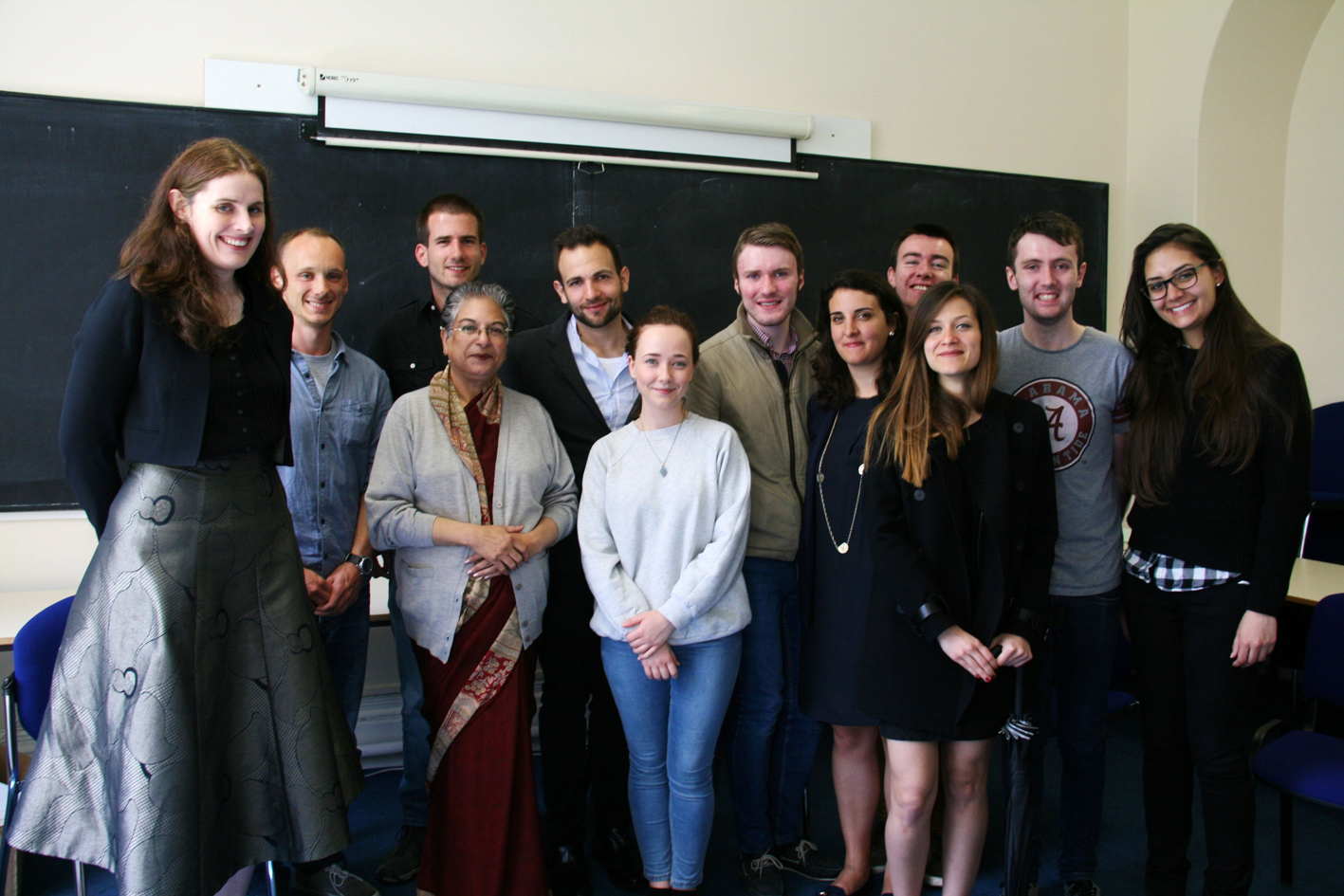Welcome
In an era of globalisation, it is no longer possible to understand law in a purely national context. As globalisation not only intensifies but also comes under challenge, it has never been more important for lawyers to develop an in-depth understanding of law in its wider international context.
- Postgraduate Taught Programmes
- Modules
- Student Experience
- Student Testimonials
- Scholarships
- Contact Us
Overview of Programmes
The LL.M. programme in International and Comparative Law offers students a valuable opportunity to develop this understanding. The programme offers a rich and diverse array of modules taught by experts in the fields of international and comparative law which can be tailored according to students’ interests. Students develop their legal knowledge and advanced legal skills in these fields but also gain a deeper insight into law and legal practice in its evolving international context.
This equips students with the expertise, skills and attributes which are valuable across a wide range of careers, both within and beyond the legal profession, nationally and internationally.
Programme Structure
The LL.M. (International and Comparative Law) degree is taught over a period of one academic year, commencing in September. The year is divided into two semesters during each of which students are required to take three modules. Each module is offered in one semester only and involves 22 hours of classwork. Various forms of assessment are utilized in the different modules. Where modules are assessed by way of examination, as the examinations are scheduled at the end of each semester, in December and April/May. Students may be required to take Reassessment examinations in August/September. In addition, all students must complete a research dissertation over the academic year on an approved theme that relates to their LL.M degree. These dissertations must be submitted on or before end of June.
In addition to a mandatory research dissertation, students will study three modules per semester, choosing from an extensive and diverse range of modules, each worth 10 ECTS. Applicants should note that in 2025-26, it is likely there will be a mandatory 10 ECTS module entitled ‘Foundations of International in semester. At least two modules must be chosen from the list of Section A modules set out below. The remaining two modules may be chosen from either Section A or Section B modules. Section A modules are directly linked to your LLM degree. Section B modules are not related to your degree but may still be of interest to you.
Section A modules
A comprehensive list of Section A and Section B LL.M modules currently on offer is available here
*The Law School reserves the right to vary the following list and, in particular, the right to withdraw and add modules. Note that timetabling considerations may also restrict choice.
**Where a module is highly subscribed and/or becomes full, priority will be given to students enrolled in the related LL.M programme (where the module is listed as ‘Section A’).
Programme Outcomes
Having successfully completed this programme, students should be able to:
- Identify, evaluate and synthesise jurisprudential theories and concepts as they apply to international and comparative law at a level appropriate to masters graduates;
- Use appropriate legal theories, doctrines and concepts to identify, formulate, analyse and solve legal problems within national and international contexts;
- Engage meaningfully in comparative legal research using mature comparative law methodology;
- Critically analyse the interplay between law and social change in a variety of different contexts as they pertain to international and comparative law;
- Conduct effective and targeted research in case law, legislation and academic legal commentary in areas pertaining to international and comparative law at both national and international levels at a level appropriate to masters graduates;
- Communicate effectively in oral and written modes in professional and academic settings and work effectively in multidisciplinary and multi-jurisdictional settings;
- Demonstrate flexibility, adaptability and independence in order to engage productively with a changing, social, cultural and international environment; and
- Demonstrate the capacity to conduct effective research and to present the fruits of that research in a coherent and compelling manner.


